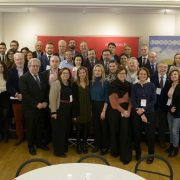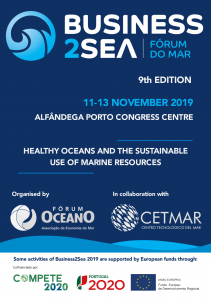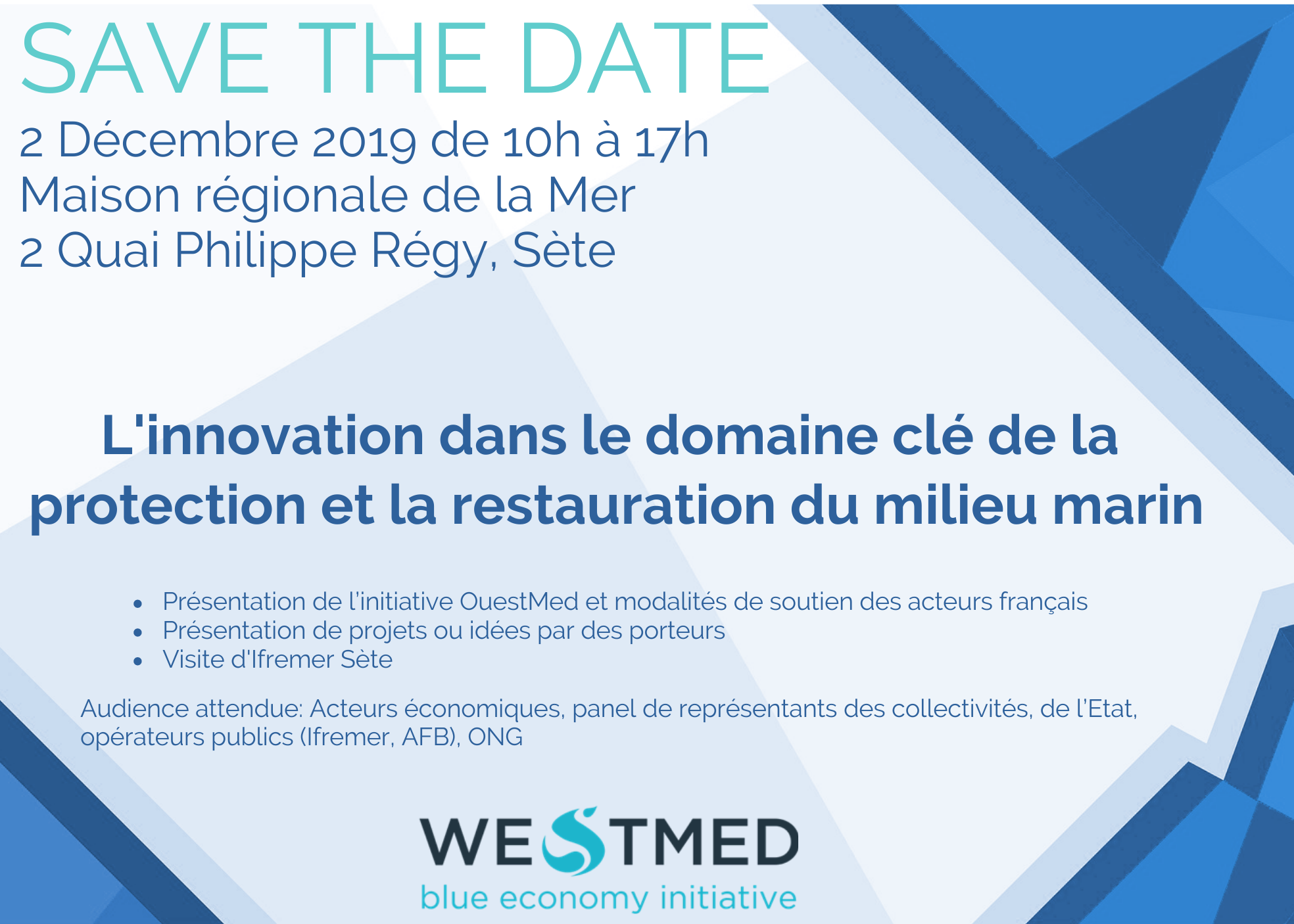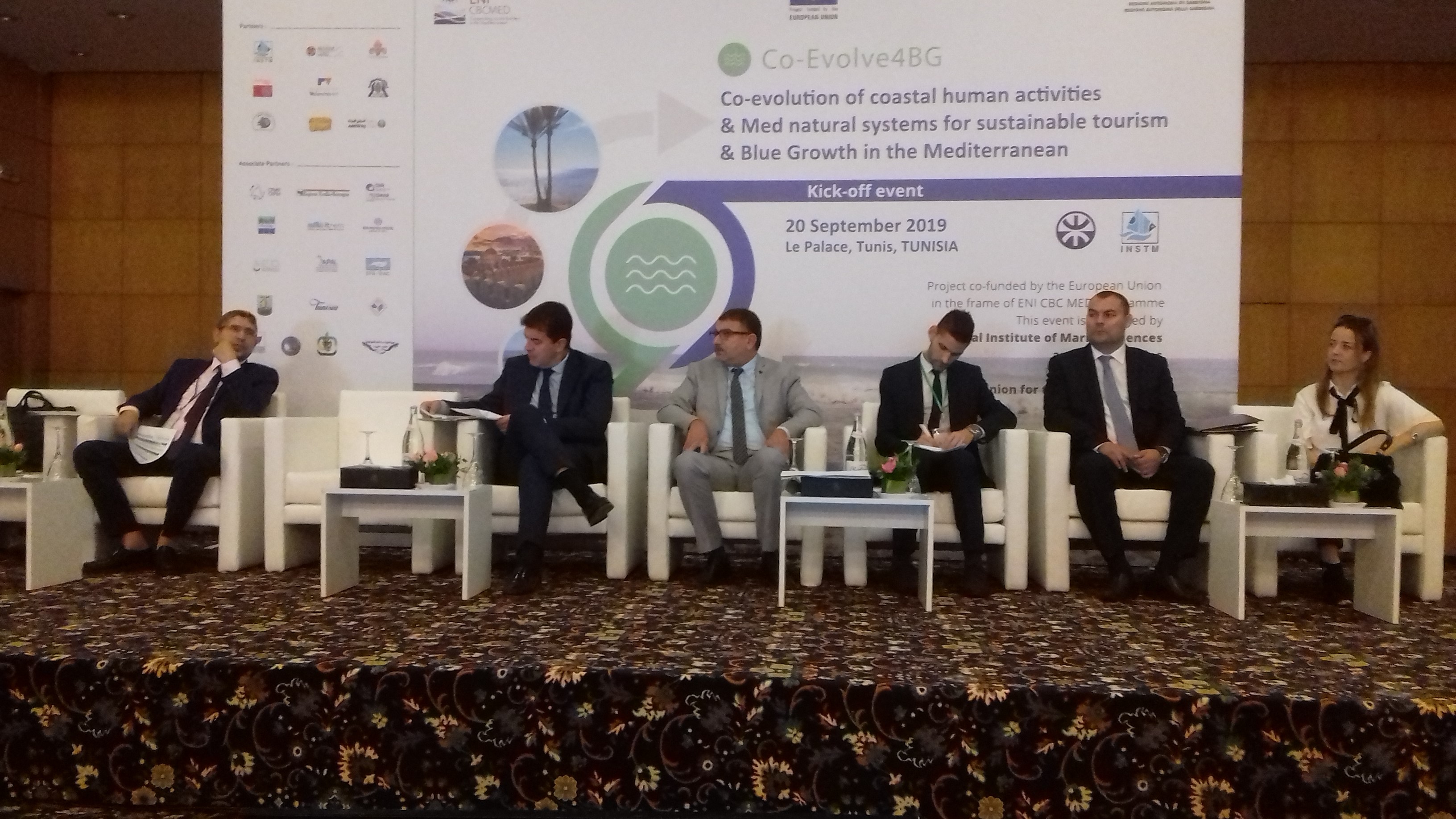WestMED réunit les principaux acteurs de l’économie bleue en Algérie
Le 08 Novembre 2019, un road show de l’initiative WestMED pour la promotion de l’économie bleue en méditerranée occidentale a été organisé à Oran (Algérie) en marge du Salon International de la Pêche et de l’Aquaculture (SIPA 2019) qui s’est tenu au Centre des Convention d’Oran, du 06 au 09 novembre 2019.
Après le mot de bienvenue et la présentation des attendus et objectifs de cette rencontre ainsi que le programme de la journée par M. Rafik Moualek, Directeur d’étude à la Direction Générale de la Pêche et de l’Aquaculture et coordinateur National de l’Initiative WestMED, Monsieur Taha Hammouche, Directeur Général de la Pêche et de l’Aquaculture a procédé à l’ouverture de la journée en tenant à rappeler les étapes clés de WestMED et le cadre politique de sa mise en œuvre. Il a également souligné les principaux acquis de ce processus, notamment les priorités sous régionales et la feuille de route-WestMED ainsi que les principales déclarations ministérielles et les activités menées dans les laboratoires (Conférence d’Alger) et les Hackathons (Conférence de Palerme).
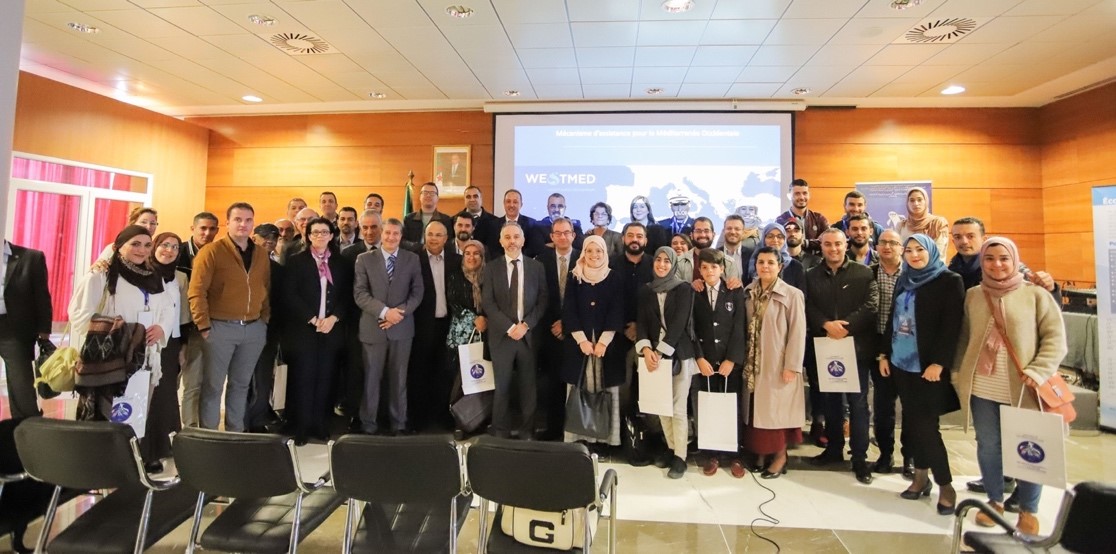
Au cours de cet atelier, qui a vu la participation des principaux acteurs de l’économie bleue en Algérie dont les représentants des Secteurs partenaires représentés par les membres du Comité National de l’Economie Bleue (CNEB), des professionnels et des opérateurs économiques, des représentants de la société civile et du monde universitaire et des institutions de recherche, trois communications ont été présentées.
M. Frederick Herpers, Hub National France de WestMED est intervenu sur le cadre, l’organisation et les objectifs de l’initiative WestMED pour le développement de l’économie bleue en Méditerranée occidentale. Cette présentation a permis de souligner l’importance de cette initiative en tant qu’instrument de coopération entre les pays, les régions et les peuples de la Méditerranée occidentale. Les objectifs et le cadre commun de l’action ont été également rappelés. Un regards sur l’avenir a été porté à l’attention de l’assistance à travers quelques thématiques prioritaires, notamment le transport maritime durable (GNL, zone de réglementation des émissions de polluants (ECA), les autoroutes de la mer), l’aquaculture durable et innovante à valeur ajoutée, l’accélération des modèles économiques de tourisme durable, la lutte contre la pêche illicite, non déclarée et non réglementée (INN), la formation ainsi que l’économie circulaire et les déchets marins.
Samir Grimes Hub National Algérie de l’initiative WestMED pour l’Algérie a pour sa part présenté une communication intitulée « Apport de WestMED et du cadre de coopération à la mise en œuvre de l’économie bleue en Algérie ». L’historique des principales étapes et conférences en Méditerranée occidentale ont été rappelés (Bruxelles, Naples, Alger, Palerme). Les principales décisions et rendez-vous au niveau national ont été fortement soulignés, en particulier, la mise en place du comité nationale de l’économie bleue (CNEB), le processus d’élaboration de la stratégie nationale de l’économie bleue (SNEB 2030). M. Samir Grimes a également abordé la question du cadre de la gouvernance maritime à adapter en vue de mettre en œuvre la future stratégie. Les principales retombées de WestMED sur le processus en cours en Algérie sur l’économie bleue ont été présentées et discutées, en particulier en ce qui concerne l’information-formation, le renforcement de capacités, arrangements institutionnels et accompagnement. M. Grimes a enfin évoqué les perspectives à court terme dans le cadre du projet WestMED, notamment la réalisation de la cartographie nationale des acteurs de l’économie bleue et la base de données nationale sur l’économie bleue.
La présentation de M. Christophe Le Visage a porté sur les dimensions politiques et sociales de l’économie bleue, l’évolution du concept, quelques outils et instruments ont également été mentionnés. M. Le Visage a insisté sur les principaux drivers qui ont été à la base de l’émergence de l’économie bleue comme véritable moteur de développement économique et social. Au cours de son intervention, M. Le visage a souligné l’importance de la zone économique (ZEE) instituée par l’Algérie et la nécessité de mettre en place les outils au niveau national pour sa gestion.

